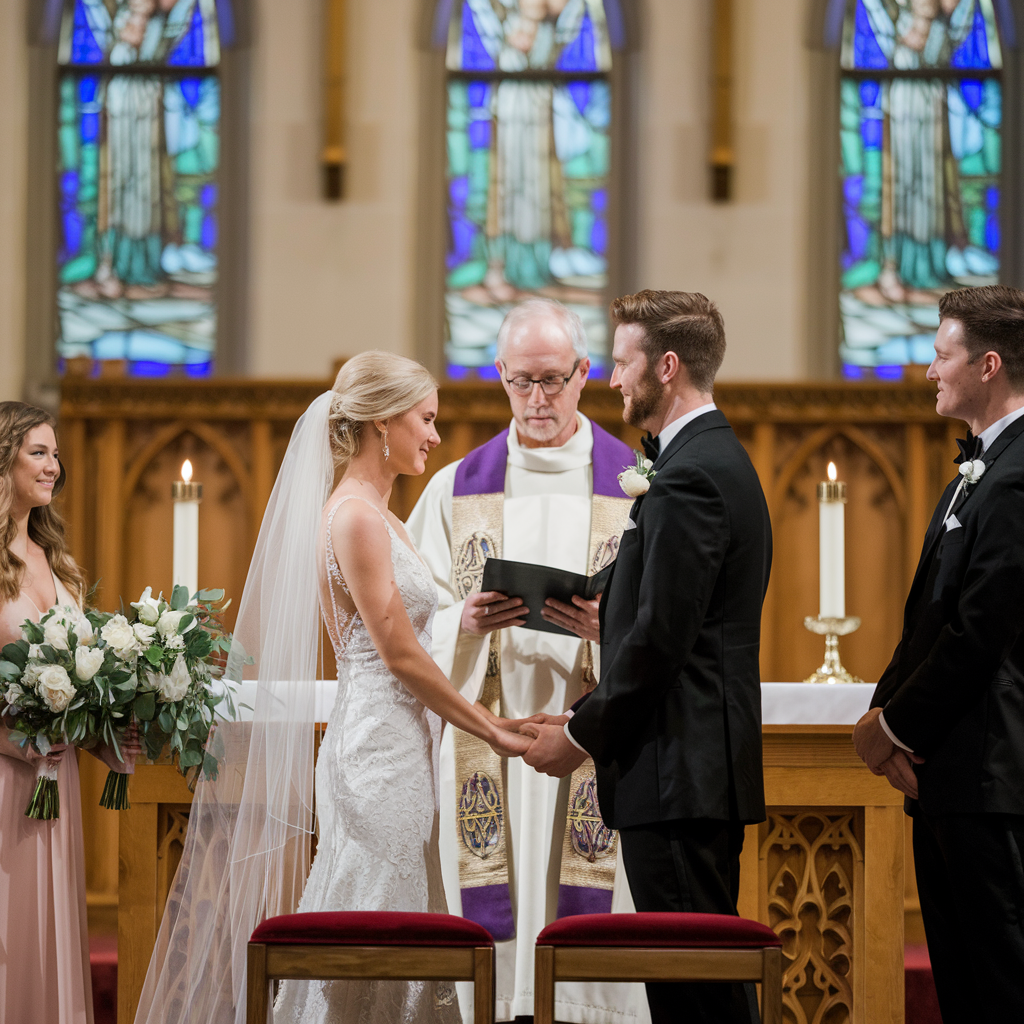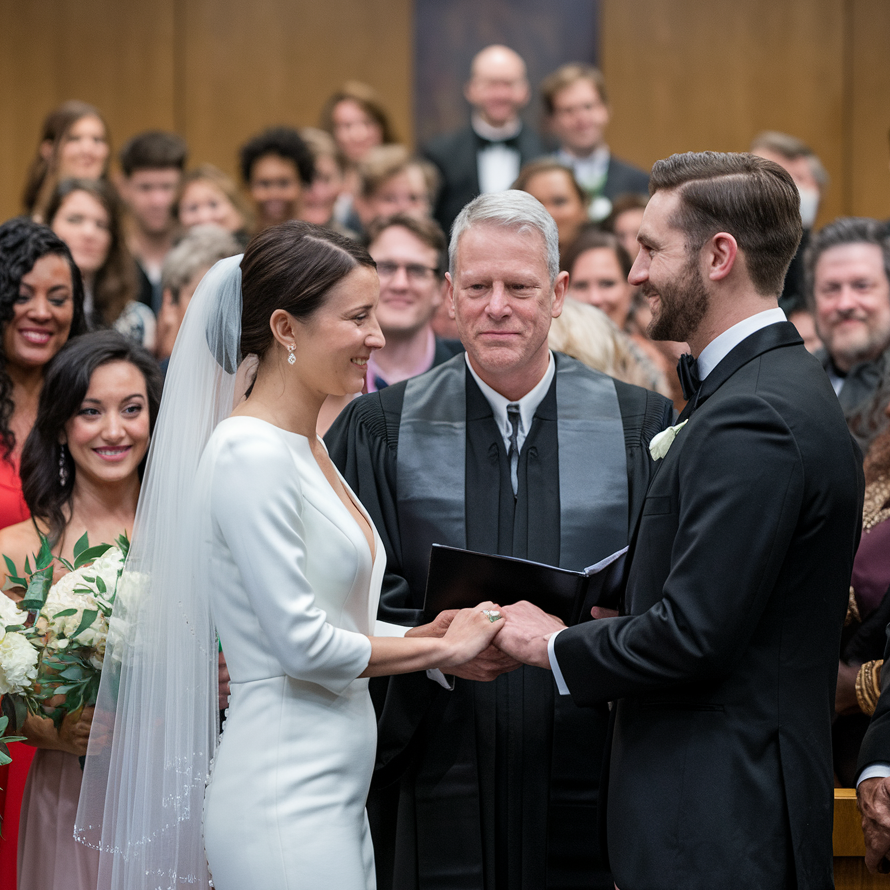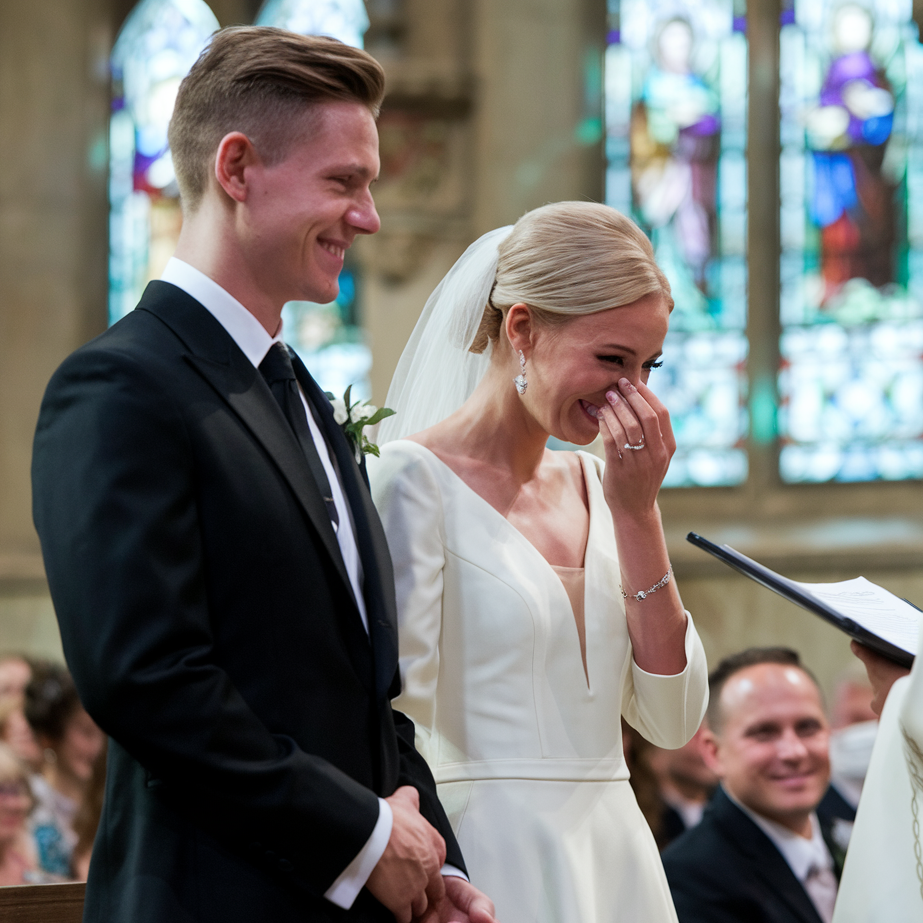
Key points
- Lifetime commitment is the core meaning of “till death do us part.” It’s a vow to stick with your spouse no matter what life throws at you.
- The vow represents a sacred promise between two people who love each other.
- In today’s world “till death do us part” faces many tests. Modern marriages deal with more stress from work, money worries, and changing social values. Some couples now change this vow to match their own beliefs about marriage.
Contents
Theological Perspectives on ‘Till Death Do Us Part’

We say “till death do us part” in wedding vows as a commitment and pledge.
These words are deeply rooted in faith traditions that inform people that marriage is not just a mere contract. It is a covenant; a higher form of promise that God oversees.
It’s more than just being happy or finding the right soulmate. It is not just about the wedding day but more about the marriage years down the road.
Biblical foundations of marriage vows
The lessons from the Bible about marriage show that it is for life. It means that when a couple gets married and leaves their family stay with their partner and combine their lives. This means their lives integrating completely without any exceptions.
Jesus made this clear: Don’t divorce. Marriage creates a bond that no human should break.
Ephesians 5:25 – Paul likens marriage to Christ’s love for the church by stating “Husbands, love your wives, just as Christ loved the church and gave himself up for her. “
This shows that marriage is a likeness of God’s steadfast love that perseveres even when it is difficult. Even when holding and staying strong seems like air you cannot see.
Timothy Keller’s interpretation of lifelong commitment
Many people come to understand marriage through Timothy Keller. Timothy Keller’s book “The Meaning of Marriage” states that our culture sees marriage to a large extent – a mechanism for happiness.
He also explains that our culture views marriage as mainly about personal happiness. But the Bible shows it’s much more. Marriage can make us better; not just a better spouse.
What makes “till death” so important? Keller says this promise creates safety. Knowing our spouse will stay allows us to be truthful about our faults. We can work through struggles without worrying about being left.
Keller’s point about covenant vs. contract. He explains: “In a contract I give to get. In a covenant, I give myself to you regardless. When things go south or feelings shift, the covenant view helps us stay unified.”
The “till death” vow isn’t about being trapped. It’s about being free to love fully because we have decided to stay. There is a secure space where we can settle in a joy that lasts longer than the high we did not engage in.
Sociocultural Factors

Marriage has different faces. The belief behind wedding vows like “Till death do us part” varies significantly with culture, history, and society.
These marriage vows don’t mean the same to everyone but their core meaning remains constant even when expectations may change.
The meaning of till death do us part may vary
In the West people marry mainly by choice and for love according to the vows. The promise of “death do us part” comes from their Christian belief that marriage lasts for life – but this isn’t universal.
In Japan marriage vows were originally based on family obligations. The idea of “en-musubi” or tying the knot indicates that marriages are fated and not personal.
In Indian Hindu marriages the Sanskrit term Saptapadi or “seven steps” is used. Each symbolizes a promise that binds couples for not just this life but for seven lives.
In most African cultures union marriages are seen as joining two families. Nigeria’s Yoruba culture’s marriage is said to connect families with their ancestors and future offspring. Death doesn’t end these connections.
Cultural contrast defines the way we perceive forever in marriages. It varies from culture to culture.
As anthropologist Dr. Williams (2020) notes the forever of marriage is interpreted through narratives that give meaning to social expression beyond individual experience.
Societal expectations and pressures
Society shapes how we think about marriage commitment. Family, friends, religious groups, and even films tell us what makes a “good marriage.”
In many places divorce still carries shame. A study by Pew Research (2019) found that 25% of Americans still consider divorce wrong. People feel pressure to remain in unhappy marriages to avoid judgment.
The “Til death” notion often gets religious backing. They back the idea of staying in marriage forever. One study participant told researchers “I felt like I’d fail my whole church if I left and I was miserable anyway (Johnson & Smith, 2021).”
But the media show us conflicting messages. Romance movies sell us the idea of love forever but the tabloids aren’t much better at filling our news feeds with divorce stories. Couples become confused with mixed signals and what feels normal.
Social media adds a new layer of pressure. Couples only post their happy moments thus giving a false impression of marriage. This causes trouble for others in their relationships as they have issues.
Financial concerns also keep people together. Women who leave marriages often face poverty risks. Researchers discovered that the average standard of living of divorced women dropped by almost 27% while men increased by 10%.
Challenges and Realities

Marriage changes over time. It’s not the same in year twenty as in year two. Those words may sound simple at the altar – “till death do us part” but living those words brings many tests and turns.
Common challenges faced in upholding lifelong vows
Money problems test many couples. A study from the American Institute of CPAs found that money causes fights for 73% of married or cohabiting people (AICPA, 2012).
“Tom and Sarah almost broke apart when they lost their home in 2008. They felt alone together because they did not communicate about money.”
Growing apart happens too. We change as we age. The person you marry at 25 may feel like a different person to you 20 years later at 45.
Research on successful couples by Dr John Gottman has shown that they grow together and not just alongside each other (Gottman & Silver, 2015).
Health problems test vows in deep ways. Becoming sick can have a major effect on a couple’s vows. Imagine this: I once spoke to the wife of a man who has dementia and she told me: “I had married him twice; once when he was young and the second time when he forgot who I was.”
Trust breaks hurt the most. A marriage’s foundation may crack due to an affair, lie, or hidden habit. Many couples don’t heal from this breach.
American Association for Marriage and Family Therapy found that about 15% of wives and 25% of husbands have sex outside their marriage (AAMFT, 2018).
Role of forgiveness and resilience in marriage
Forgiveness works like glue in long marriages. I’m not talking about the quick “that’s alright” kind – I’m talking about the deep one after real pain and real talk.
Couples who forgive each other report greater satisfaction in their marriage and better health (Worthington & Scherer, 2004).
Being resilient means bouncing back and bending. Dr. Karen Skerrett shared that couples who have a “we story” overcome difficulties and they grow stronger as a couple. They don’t just get through hard times; they find meaning in them.
Using the phrase “til death do us part” asks us to love during the parts we didn’t expect. The choice to love at that point; is not so much the feeling that builds something that lasts.
Frequently Asked Questions (FAQ)
How did Henry VIII change marriage vows?
Henry VIII influenced the transformation of marriage vows through his separation from the Catholic church. The Book of Common Prayer created under his son’s reign standardized the English wedding ceremony text including “till death do us part.” This change reflected both his personal need for divorce and the rise of state involvement in marriages.
Do different Christian denominations use different vow wording?
Yes. Various Christian denominations feature variations in wedding vow wording while maintaining the core “till death” commitment. Roman Catholic Church ceremonies often use traditional phrasing emphasizing the sacred contract between husband and wife. Protestant denominations may offer more flexibility, allowing couples to personalize vows while keeping the biblical background of a lifelong partnership.

I am a free-spirited author with the focus of relationships, travel, mental health, and womanhood. I am still new to the writer scene but am excited for the journey that awaits.